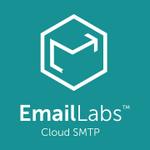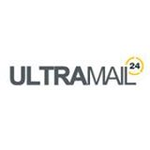Description

EmailLabs

Recapture
Comprehensive Overview: EmailLabs vs Recapture
EmailLabs Overview
a) Primary Functions and Target Markets
EmailLabs is an email delivery platform designed to ensure high deliverability rates for transactional and marketing emails. Its primary functions include email sending, deliverability monitoring, and analytics. It offers features like SMTP Relay and API, which help businesses ensure that their emails hit the inbox rather than the spam folder.
Target Markets:
- E-commerce platforms that need transactional email services.
- Large enterprises with extensive email marketing campaigns.
- Developers and IT teams who require API integration for sending emails programmatically.
- Digital marketers who need reliable email delivery for newsletters and promotions.
b) Market Share and User Base
EmailLabs operates in a competitive space with numerous other email service providers like Mailgun, SendGrid, and Amazon SES. The market share and user base for EmailLabs can vary significantly depending on the region and specific business needs. While specific market share statistics for EmailLabs might not be publicly available, it competes strongly in Eastern Europe and expanding markets thanks to its robust deliverability performance and localized support.
c) Key Differentiating Factors
- Deliverability Focus: EmailLabs emphasizes high deliverability rates with tools for monitoring and optimizing email delivery.
- Local Support: Unlike global giants, EmailLabs offers localized customer service, which can be a critical factor for businesses in specific regions.
- Customization and Integration: EmailLabs provides extensive API support for developers, allowing easy integration with existing systems.
- Security: The platform often touts its adherence to security standards, ensuring data protection and compliance with various regulations.
Recapture Overview
a) Primary Functions and Target Markets
Recapture is an e-commerce email marketing tool with a focus on cart abandonment recovery, email marketing automation, and customer retention strategies. Its primary functions include sending abandoned cart emails, win-back campaigns, and promotional messages.
Target Markets:
- Small to medium e-commerce businesses looking to increase conversion rates.
- Online retailers who need automated email solutions for cart recovery.
- Businesses focusing on customer retention and re-engagement.
b) Market Share and User Base
Recapture caters mainly to the e-commerce segment and is often preferred by small to medium-sized businesses. Compared to giants like Klaviyo or Omnisend, Recapture has a more niche market presence but offers competitive pricing and targeted functionalities that appeal to its specific user base.
c) Key Differentiating Factors
- Specialization in Cart Recovery: Recapture is particularly known for its robust cart abandonment solutions, which is a crucial area for e-commerce businesses.
- Ease of Use: Designed with smaller businesses in mind, Recapture offers a user-friendly interface that simplifies creating and managing campaigns.
- Integration Capability: It integrates seamlessly with popular e-commerce platforms like Shopify and Magento, allowing for easy implementation without extensive technical expertise.
- Focused Feature Set: Unlike broader marketing platforms, Recapture focuses specifically on features that increase conversions and sales recovery.
Comparison Summary
In comparing EmailLabs and Recapture:
- Functionality: EmailLabs focuses on email deliverability for a broad range of email types and industries, while Recapture specializes in e-commerce email marketing with emphasis on cart recovery.
- Target Market: EmailLabs targets larger enterprises and developers, whereas Recapture is focused on small to medium-sized e-commerce businesses.
- Key Features: EmailLabs differentiates through its deliverability and integration capabilities, while Recapture stands out for its simplicity and effectiveness in cart abandonment recovery.
- Market Reach: EmailLabs has a broader market reach given its deliverability focus, whereas Recapture, while more niche, offers critical features for its target audience.
Contact Info

Year founded :
Not Available
Not Available
Not Available
Poland
Not Available

Year founded :
Not Available
Not Available
Not Available
United States
http://www.linkedin.com/company/recapturegroup
Feature Similarity Breakdown: EmailLabs, Recapture
As of my last update, there are various platforms in the email marketing and retention space, each offering some unique features. Here’s a feature similarity breakdown for EmailLabs and Recapture:
a) Core Features in Common
-
Email Campaign Management: Both platforms likely offer tools to create and manage email campaigns, including scheduling, templates, and customization options.
-
Analytics and Reporting: Insights into open rates, click-through rates, and other engagement metrics are standard in both tools, allowing users to refine their strategies.
-
Automation: Automation features such as drip campaigns, autoresponders, and triggered emails help in maintaining regular contact with the audience.
-
A/B Testing: Both are likely to offer split testing to experiment with different subject lines, email content, and sending times to optimize engagement.
-
Integration Options: Compatibility with various CRM systems, eCommerce platforms, or other marketing tools is typically supported for seamless operations.
-
Segmentation: Audience segmentation features enable targeted marketing efforts based on user behavior, preferences, or demographic information.
b) User Interfaces Comparison
EmailLabs:
- Known for user-friendly interfaces, EmailLabs may provide a more streamlined and intuitive experience focused on simplicity and ease of use.
- The dashboard might feature a clean design with clear navigation paths for campaign creation, analytics, and settings.
Recapture:
- Recapture might focus on practical functionality with a dashboard dedicated to cart abandonment solutions and other retention features.
- The interface could be more specialized for eCommerce businesses, offering advanced tools tailored for online retail challenges.
c) Unique Features
EmailLabs:
- Deliverability Focus: EmailLabs may emphasize deliverability, offering features like dedicated IP addresses, deliverability consulting, or advanced filtering to ensure emails land in inboxes rather than spam folders.
- Transactional Emails: They might have advanced support for transactional email systems, providing robust API capabilities and SLAs for time-sensitive communications.
Recapture:
- Cart Abandonment Recovery: Recapture is likely specialized in cart abandonment solutions, providing detailed tools for creating specific campaigns focused on recovering lost sales.
- Integrations with eCommerce Platforms: Deep integration with platforms like Shopify or Magento sets Recapture apart, allowing for seamless recovery campaigns tailored to eCommerce workflows.
Summary
While EmailLabs and Recapture share common email marketing features like campaign management, analytics, and automation, they cater to slightly different niches. EmailLabs may offer advantages in deliverability and transactional emailing, while Recapture stands out with its focus on eCommerce retention strategies, particularly cart abandonment recovery. The choice between the two would largely depend on a business's specific needs, such as deliverability enhancements or robust eCommerce recovery tactics.
Features

Email Campaign Management
Deliverability Tools
Audience Segmentation
Performance Analytics

Cart Recovery
Email Marketing
Analytics & Reporting
Integrations
Best Fit Use Cases: EmailLabs, Recapture
EmailLabs and Recapture both serve specific niches in the digital marketing and communication space, catering to different business needs. Here's a breakdown of their best-fit use cases and how they cater to various industries and company sizes:
EmailLabs
a) Best Fit Use Cases for EmailLabs:
-
Transactional Emails for E-commerce and SaaS:
- Businesses that require the reliable and secure delivery of transactional emails, such as order confirmations, shipping notifications, and account updates, will benefit significantly from EmailLabs. These companies need fast, dependable delivery to enhance customer experience and operational efficiency.
-
Marketing Campaigns for SMEs:
- Small to medium enterprises (SMEs) initiating robust email marketing campaigns can leverage EmailLabs for its deliverability and optimized sending features. The platform is ideal for businesses that want to ensure high open and engagement rates.
-
Organizations with High Email Volume:
- Companies in the finance, healthcare, and logistics sectors that send a high volume of emails daily can use EmailLabs for its robustness and ability to handle large email loads efficiently. These businesses benefit from EmailLabs' advanced analytics and deliverability insights.
d) Catering to Industry Verticals and Company Sizes:
- Industries: EmailLabs is particularly beneficial for e-commerce, logistics, finance, and SaaS industries that prioritize transactional email capabilities.
- Company Sizes: While effective for SMEs and large enterprises, it’s particularly advantageous for companies with substantial email throughput and those needing sophisticated email infrastructure support.
Recapture
b) Preferred Scenarios for Recapture:
-
Abandoned Cart Recovery for E-commerce:
- E-commerce businesses seeking to recover lost sales from abandoned shopping carts find Recapture especially effective. Its focus on remarketing strategies helps boost conversion rates by re-engaging customers.
-
Customer Retention for Online Retail:
- Retail businesses looking to improve customer retention and repeat purchases can use Recapture’s re-engagement tools to personalize follow-ups and promotions, enhancing overall customer lifetime value.
-
Automated Lifecycle Email Campaigns:
- Projects requiring automated campaigns targeted at different stages of the customer lifecycle will benefit from Recapture’s capabilities. These include welcome series, post-purchase follow-ups, and win-back campaigns that help nurture customer relationships.
d) Catering to Industry Verticals and Company Sizes:
- Industries: Primarily serves the e-commerce and retail sectors, where cart abandonment and lifecycle marketing are critical to increasing revenue.
- Company Sizes: Ideal for small to medium-sized online retailers looking for cost-effective solutions to boost their remarketing without investing heavily in large-scale CRM systems.
Conclusion
Both EmailLabs and Recapture offer solutions for distinct needs: EmailLabs is a great choice for businesses focusing on transactional email reliability and volume, while Recapture excels in e-commerce scenarios where cart recovery and customer engagement are crucial. The choice between these two largely depends on a business's specific challenges, email marketing sophistication, and growth goals across different industries and company sizes.
Pricing

Pricing Not Available

Pricing Not Available
Metrics History
Metrics History
Comparing teamSize across companies
Conclusion & Final Verdict: EmailLabs vs Recapture
When evaluating EmailLabs and Recapture, it's crucial to assess several factors, including features, pricing, user-friendliness, integrations, and customer support, to determine which product offers the best overall value.
Conclusion and Final Verdict:
a) Best Overall Value:
Recapture generally offers the best overall value for businesses specifically focused on e-commerce and enhancing abandoned cart recovery, due to its concentrated suite of tools specifically designed for recovering lost sales and increasing customer lifetime value. EmailLabs, however, provides a compelling option for businesses needing reliable, high-performance email delivery.
b) Pros and Cons:
EmailLabs:
- Pros:
- High deliverability rates due to strong infrastructure.
- Advanced analytics and reporting features to track email performance.
- Scalable plans suitable for businesses of different sizes.
- Strong API support for seamless integration.
- Cons:
- Primarily focused on transactional and marketing email delivery, so it might lack specific e-commerce recovery features.
- Potentially challenging for users with less technical expertise to fully utilize all features.
- Pricing may not be as competitive for small businesses focused on e-commerce alone.
Recapture:
- Pros:
- Specialized tools for abandoned cart recovery, increasing e-commerce sales.
- User-friendly interface designed for e-commerce stores.
- Automated email campaigns specifically tailored for online retailers.
- Competitive pricing models, especially for growing e-commerce businesses.
- Cons:
- Less versatile for general email marketing needs outside e-commerce.
- Limited feature set for non-e-commerce businesses.
- May not offer the same level of deliverability features as EmailLabs.
c) Specific Recommendations:
-
For E-commerce Businesses: If your primary focus is improving abandoned cart recovery and increasing sales through targeted email campaigns, Recapture is likely the better choice due to its specialized features in these areas.
-
For Businesses Needing Robust Email Delivery: For organizations that require reliable email delivery with high deliverability rates and advanced analytics, EmailLabs would be a strong option. It is particularly suitable for those needing a powerful transactional email solution.
-
Balanced Needs: Should your business require both strong email delivery capabilities and e-commerce tools, consider integrating both solutions or evaluating your priorities to focus on the solution that meets your most critical needs.
Ultimately, the decision should be based on your specific business requirements and the overall value each tool provides in alignment with your business goals.
Add to compare
Add similar companies



